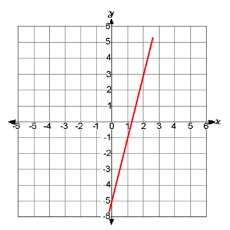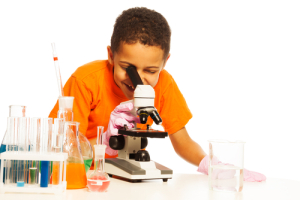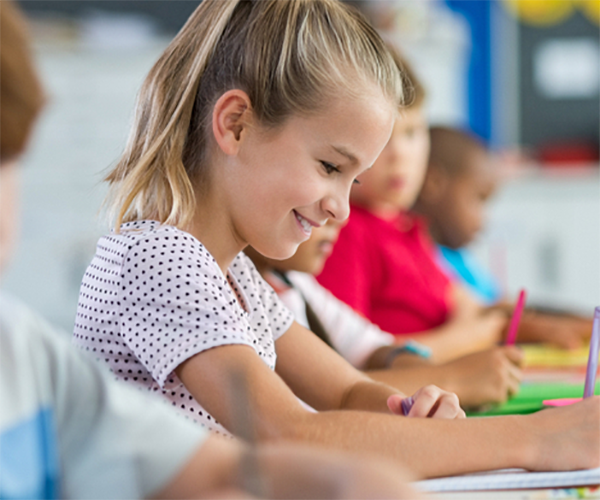In our latest blog series - 'Year Overview' - we help you get familiar with all the key topics your child will learn and the key skills they'll improve in primary and secondary school. Here's a brief overview of Year 11 in English, maths and science with focus areas and main topics.
* Year 2 Overview *
English - Years 10 and 11
Ms Brown - English teacher
During Years 10 and 11 the children will be working towards their GCSEs in English and English Literature. Some children may sit one of these GCSEs at the end of Year 10 and some may wait until Year 11 to sit both. Both models are normal and different schools structure their courses to meet the requirements of their particular students.
During the GCSE course of study, the children will continue to read and appreciate the English literary heritage. They'll read a wide range of whole texts including challenging classic literature and nonfiction such as essays and journalism. Over the two years they'll study at least one play by Shakespeare, various works from the 19th, 20th and 21st centuries and a range of poetry from 1789 including Romantic poetry. The children will be encouraged to understand and critically evaluate the texts and then make an informed personal response to the texts. They'll also understand that there can be different responses to the same text.
At GCSE level, the children are required to be accurate and fluent writers who can write effectively and at length for information and for pleasure. They'll need to be able to write for various audiences and purposes for example: to explain, argue, instruct, describe and narrate. The children will need to select and organise their ideas and be able to cite evidence such as quotations in their writing. They'll need to be judicious revisers, editors and proof-readers and ensure that their draft reflects the original purpose.
As part of their GCSE studies the children will be required to take part in various speaking and listening tasks including: discussions, debates, role play and delivering a speech. All this will be helping to prepare them for the world of work! By the end of Year 11 the children will finish their compulsory English studies as confident, critical readers who can articulate themselves fluently through the written medium. What a journey it has been!
Maths
Mr Lamberth - Maths teacher

Aiming at the top grades in the second half of the GCSE course, the exam may contain everything covered in Year 10 in addition to the following. Children need to understand the upper and lower bounds, and therefore the accuracy of any answer. Having converted decimals to fractions for years, they finally deal with converting recurring decimals. They also become familiar with the quadratic formula and need to use this to solve equations and find the turning points on a graph. Continuing the quadratic theme, they may be asked to solve inequalities involving a quadratic equation. Children take their understanding of surds further and simplify them, always ensuring no surds remain as the denominator. Vectors have had a small part to play up until now but they are now used to prove lines are parallel or similar. There is also an increased emphasis on choosing the correct method of displaying data, including using histograms with their unequal class intervals and cumulative frequency graphs. Finally, they move on to conditional probabilities and represent them in many ways, including two way tables and Venn diagrams.
Have you tried our Maths Assessment yet? Join EdPlace’s Maths Challenge: work through the questions, complete the recommended online worksheets and earn badges! Have fun!
Science
Ms Latham - Science teacher

Science is changing our lives and is vital to the world’s future prosperity, all students should be taught essential aspects of the knowledge, methods, processes and uses of science. They should be supported to appreciate the achievements of science in showing how the complex and diverse phenomena of the natural world can be described in terms of a number of key ideas relating to the sciences which are inter-linked, and which are of universal application.
GCSEs in the sciences will change from 2016. Here is an outline of some of the changes;
- Biology; At least 8 assessed practical activities. 15% of the exam marks on an understanding of practical work and 10% of the exam marks will test maths skills.
- Chemistry; At least 8 assessed practical activities. 15% of the exam marks on an understanding of practical work and 20% of the exam marks will test maths skills.
- Physics; At least 8 assessed practical activities. 15% of the exam marks on an understanding of practical work and 30% of the exam marks will test maths skills.
- Double science; Award’s double grades from 9-9 (highest) to 1-1 (lowest). 16 mandatory assessed practical activities. 15% of the exam marks on an understanding of practical work and 20% of the exam marks will test maths skills.




.jpg)





